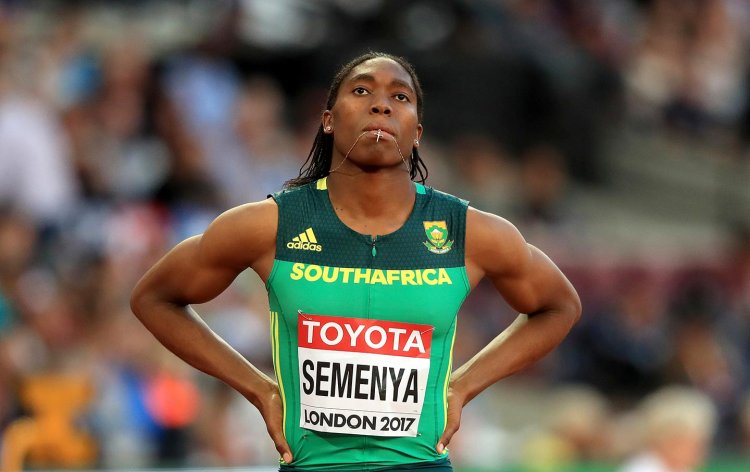Semenya now focused on ‘righting’ ‘wrongs’ than winning medals

Double Olympic 800m champion Caster Semenya says her focus is now "more about winning battles against the authorities" than collecting medals.
Semenya, 32, was born with differences in sexual development (DSD) and cannot compete in any track events without taking testosterone-reducing drugs.
The South African wants to hold World Athletics to account for discrimination against athletes with hyperandrogenism.
"I fight for what is right for humanity and for inclusivity," she said.
Speaking to news agency Reuters, Semenya - also a three-time 800m world champion - added: "My last chance to win at the Olympics was in 2016 - Paris [host of the 2024 Games] is not my goal. It is more about winning my battles against the authorities.
"In running I have achieved everything I ever wanted. They have never stopped me from being the great athlete I am. I went four years unbeaten; I've done my part."
In July, the European Court of Human Rights ruled in favour of Semenya in a case related to testosterone levels in female athletes.
The case at the ECHR was not against sporting bodies or DSD rules - but specifically against the government of Switzerland for not protecting Semenya's rights and dates back to a Swiss Supreme Court ruling three years ago.
The ECHR found the Swiss government did not protect Semenya from being discriminated against when its Supreme Court refused to overturn a decision by the Court of Arbitration for Sport (Cas), which upheld the World Athletics rules. The judgement could yet be appealed.
Hyperandrogenism is a medical condition characterised by higher than usual levels of testosterone, a hormone that increases muscle mass and strength.
'This battle will not finish now'
Under regulations introduced in 2018, athletes with DSD were only allowed to compete in track events between 400m and the mile if they reduced their testosterone levels.
In March, World Athletics ruled that DSD athletes must now have hormone-suppressing treatment for six months before being eligible to compete in all events.
Semenya ran in the 5,000m at last year's World Championships in Oregon, but failed to qualify for the final.
She has argued that taking testosterone-reducing medication could endanger her health and that the ruling denied her and other athletes with DSD the right to rely on their natural abilities.
Because of the ruling, Semenya could not defend her 800m title at the Tokyo Olympics, which took place a year later than planned in 2021.
"It is no longer about me fighting to compete, it is about fighting for what is right," she told Reuters.
"This battle will not finish now. We will fight until the end."
She added: "I fight for all women in the world. This young, upcoming generation cannot face the same scrutiny, the same judgement. They must be treated right."




















